The issue of climate change has forced an extensive spectrum of industries to respond with one accord. The gauntlet laid down by the environmental shifts has grown from a whisper to a scream in recent years, as has the response to it. Around the world, governments and businesses alike have formulated net-zero plans designed to reduce the severity of global warming.
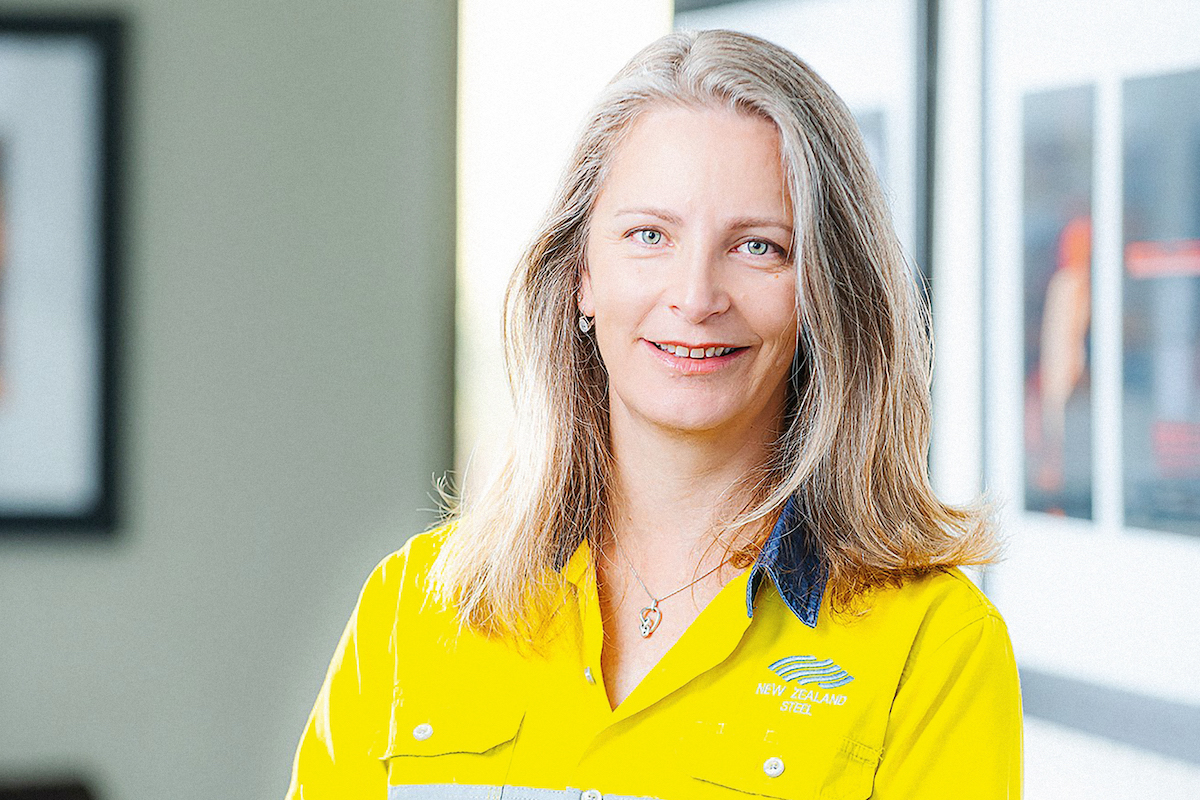
The problem is, and for decades has been, the greenhouse gas emissions caused by the production of fossil fuels. While that industry has borne the brunt of public calls for action on climate change, the resource sector has also felt increasing pressure to change tack.
In Australia, which has lagged behind much of the world in terms of climate change action, industry giants have had the chance to step up and lead the way. And they don’t come much bigger than BlueScope, Australia’s largest manufacturer of steel products and the only integrated steel producer in New Zealand. Headquartered in Melbourne, BlueScope’s operations extend from North America to Asia and across the Pacific – a significant footprint when it comes to reducing emissions.
A growing concern
In February 2021, BlueScope Managing Director and CEO Mark Vassella spoke of the challenges a company of such size and scope faced in addressing the issue. “In recent years, we have built climate change into our corporate strategy, upon recognising that addressing climate change is essential to our long-term success and have publicly stated our commitment to taking action on carbon emissions,” he said.
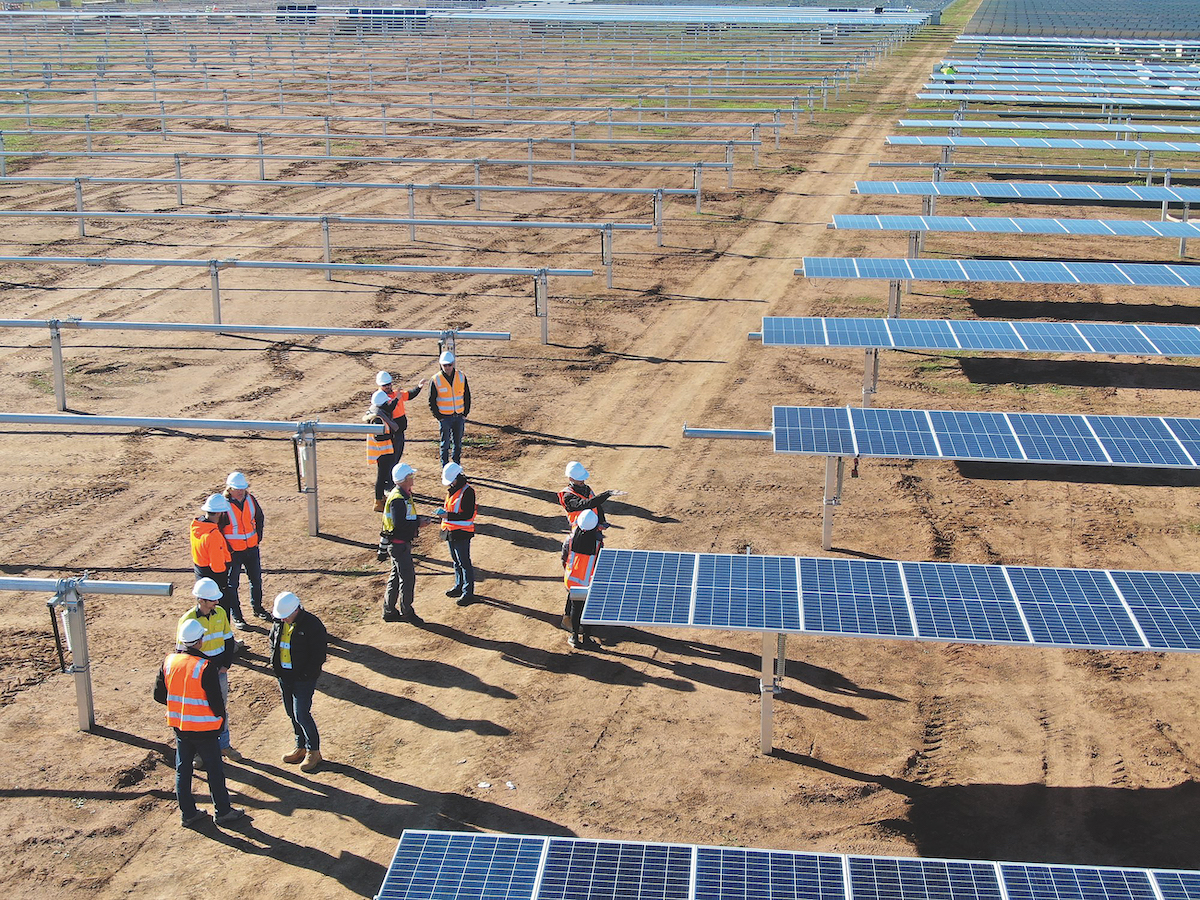
“We are now formalising that approach.” That month, to unite and accelerate its efforts on climate change, the company appointed its Chief Executive New Zealand & Pacific Islands Gretta Stephens to the newly created role of Chief Executive Climate Change. “Since my appointment in February, I have recruited a small but expert team to work closely with our business units and regions to accelerate the work to address climate change that BlueScope started some time ago,” she shares.
Under Gretta’s watch, BlueScope has developed a climate strategy and decarbonisation pathway – consisting of two mid-term targets and a 2050 net-zero GHG goal – that she says will be driven by the expertise and dedication of its people. “Delivering our strategy and pathway will also rely on collaboration – across the steel value chain, including investors, governments, customers and society more broadly – to help us drive meaningful change.”
An urgent challenge
It’s a tall order for a titan of an industry that contributes up to eight per cent of global carbon dioxide emissions as stated by McKinsey. The same report also indicated the potential value of steel companies could be slashed by 14 per cent in the absence of positive action on climate change. The steep and urgent nature of the challenge has caused companies such as BlueScope to think outside the box for the best course of action.
“We’re exploring several emerging and breakthrough technology options to drive change within our operations,” Gretta explains. “In our existing processes, we are using waste gases and heat to produce electricity, using more scrap where feasible, and implementing a range of big-data techniques to tune our process efficiency.”
Seeing people who have reported to me build and flourish in their careers is very satisfying.
The not-so-distant year of 2050 has become a flashpoint for global climate action, with the majority of governments and companies pledging visible action by that time. BlueScope has also saved the date, Gretta confirms. “Looking further ahead, we are exploring the potential for the use of hydrogen in iron making and other related transitional options leading up to 2050,” she says.
“We’re excited by the prospect of low- or zero-emissions steel, and we look forward to these technologies becoming available at the required scale.” BlueScope will invest up to A$150 million into the initiative over the next five years. “That initial allocation will help us launch new projects to progress towards GHG emissions targets,” she shares.
Skill set
All of the challenges and demands of the new role have prompted Gretta to call upon her entire range of skills developed over the course of her career. An engineer by trade and a 27-year veteran of the aluminium industry, she believes her move to BlueScope came at the right time. “As a graduate, I worked at Comalco’s research centre in Melbourne before moving into plant roles with New Zealand Aluminium Smelters and Alcoa’s Point Henry smelter in Geelong,” she says.
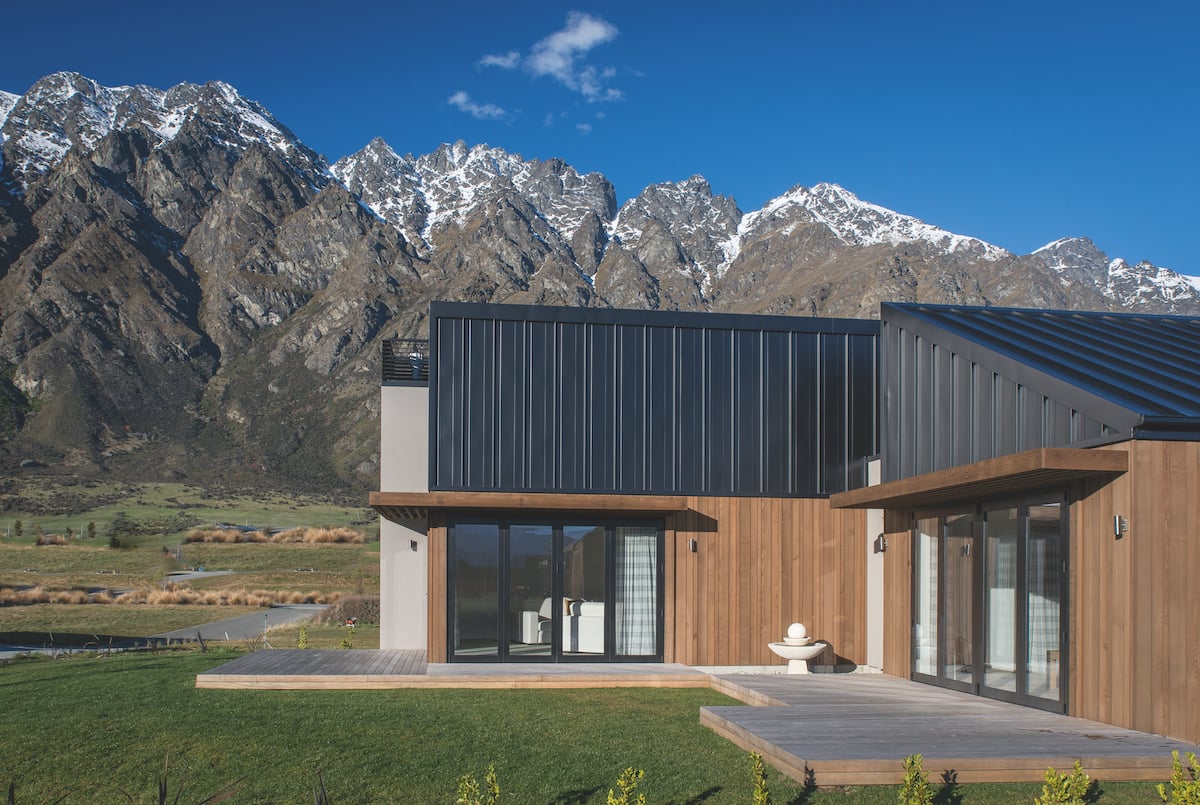
After three years, working as General Manager Business Improvement & Technology for Rio Tinto and a second five-year stint at New Zealand Aluminium Smelters, this time as General Manager, Gretta was approached by BlueScope in 2018. “I was very excited by the challenge of moving into a new industry,” she recalls. “I loved what I saw about the culture of BlueScope.”
Her initial role as Chief Executive NZPI played into her strong history across the ditch. “It let me continue my passion for maintaining heavy industry that makes such an important contribution to the country and community,” she says. Gretta’s understanding of the New Zealand industry scene aided her during a tough time. “New Zealand steel had faced some challenges in 2015–16 with steel prices at the bottom of the cycle,” she admits.
“Lots of tough decisions had to be made to successfully maintain the business.” By rebuilding confidence in the company and creating a foundation of long-term sustainable business improvement to get some distance from old loss-making patterns, Gretta set up the NZPI division for success – and discovered a new sense of personal satisfaction. “Applying business improvement tools in a way that draws out new methods of doing things from the people inside the business, and watching costs go down and efficiency increase, always makes me feel really proud,” she reflects.
“Developing people is a part of leadership I really value, and seeing people who have reported to me build and flourish in their careers is very satisfying, as is creating an environment where people can put forward their ideas and see them become a reality.”
Changing seasons
Gretta’s more transformative initiatives – improved internal communication channels, a dedicated structured business improvement process – foreshadowed the work she would eventually oversee for the company’s climate change strategy. “I’m really proud of what has been achieved in a very short time since the establishment of the BlueScope Climate Change team and the publication of our first ‘Climate Action’ report at the start of September,” Gretta smiles.
“We’ve come a long way in a very short time with strong teamwork and collaboration from a number of corporate and site teams.” That’s due in no small part to her optimistic and enthusiastic approach to leadership. “I’m always looking for ‘How can we?’” she says. “I’m collaborative and inclusive, and I believe we pretty much always have the answers inside the business somewhere.”
It’s no surprise then that Gretta was chosen for the role – at least not to some people in her life. “My husband likes to remind me that there has been a pattern of new records being set in production whenever I’m in an operations role,” she shares. “I have to admit that brings me a smile as well.”
The price of success</h2
However, an entire career within an industry where the price cycle can have more influence over financial success than the efforts of the people in it hasn’t been without its share of challenges. “When we’ve been at the bottom, maintaining pride and motivation to continue, especially when the business is under threat, is one of the biggest tests,” Gretta concedes.
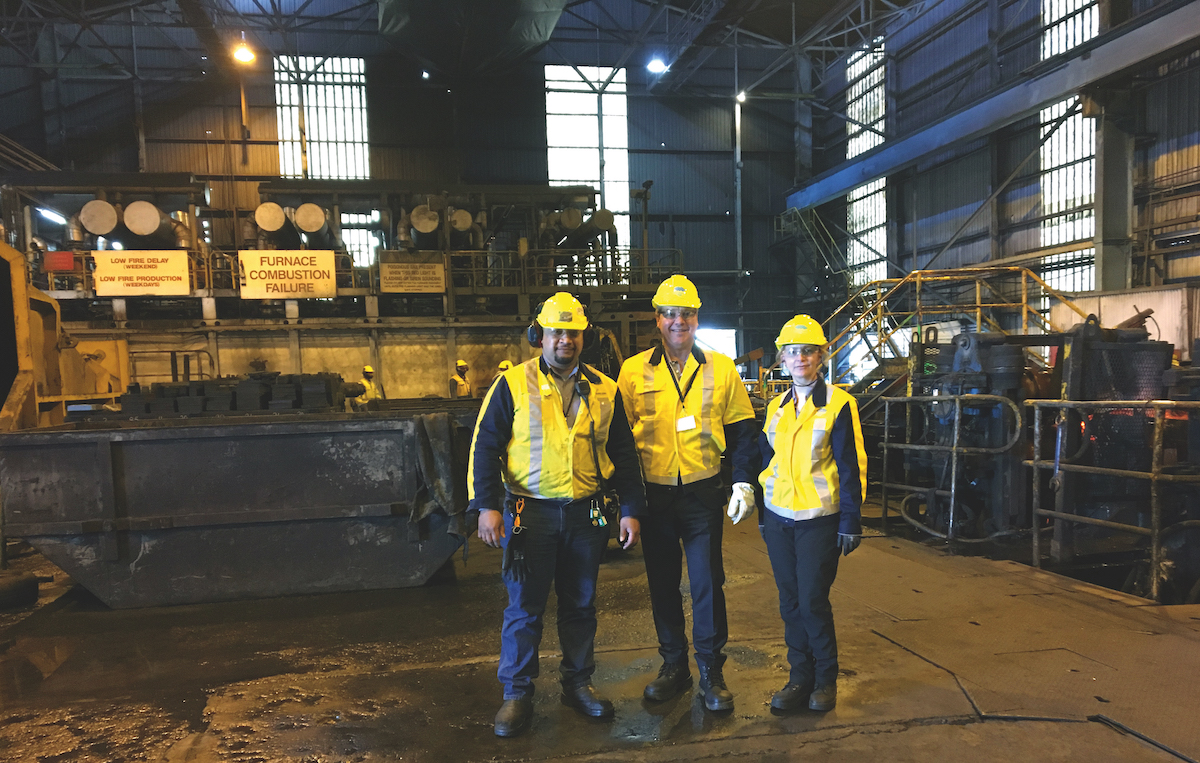
“To overcome that, it’s important to retain focus on what you can control, have a plan and be able to demonstrate positive progress towards it.” And it’s on the other side of that mountain that Gretta finds one of the great joys of her role: “I love that moment when a team has delivered a great result that didn’t come easily, and they’ve stretched and developed, and they’re proud of what’s been achieved.”
It’s definitely something Gretta has experienced her share of during her time at the company and throughout her efforts to build the brand, but she’s quick to point out that it’s a team effort. “We’re all advocates for BlueScope,” she says. “It’s crucial to empower people and support them as advocates for our business.”
Partners in climate
Equally crucial, she says, are the efforts made to reach out to the public and external stakeholders. “Personally, I know that people will form impressions about the brand based on how we show up,” Gretta shares. “So I do my homework. I work to build an open and trusting relationship, to understand what external stakeholders want or need from us, and to build transparency and find solutions.”
It’s another area of the job that provides her with its own sense of gratification. “I love advocating for my business externally,” she enthuses. “I take great pride in being able to explain what we do and share why it’s important, to give them an insight into how important our work is for the country, our communities and our people.”
Originally a part of BHP, BlueScope became its own entity in 2002, taking with it a strong line of product brands including Lysaght, Butler and Colorbond. Building upon its legacy, the company forged strong partnerships with industry veterans such as Nippon Steel and the Tata conglomerate to consolidate its position as an industry leader.
“We partner with suppliers who share our core values, behaviours and principles,” Gretta says. “That’s how it has to be to maintain supply chain sustainability.”
A culture of change
Culture is very important to BlueScope, Gretta confirms. “You can’t instil culture in people; culture is just how we do things around here. Every workplace has its good and not-so-good aspects of culture. To change it for the better, we need to be clear on what we want, then role model it, talk about it and celebrate good examples when it happens.”
In that regard, safety culture is a great launch pad for a greater change. “People behave differently when they arrive at work, as the expectations surrounding safety are clear and everyone else around them is also behaving in that way. It becomes ‘the way we do things here’,” she says. BlueScope’s Australian arm, Australian Steel Products, employs around 6,000 people at its 100-plus facilities and distribution centres around the nation.
I’m collaborative and inclusive, and I believe we pretty much always have the answers inside the business somewhere.
Zooming out, the global BlueScope family consists of around 14,000 people across 18 countries. Its steel can be found in houses, cars, buildings and more. “We are a purpose-driven steel company with strong foundations in its values,” Gretta says. A relatively young company, BlueScope still feels rather small in the ease of its communication and the ability to get things done quickly, she adds. “But our people are proud of what they do, and they always rise to a challenge.”
Shutdown reboot
Right now there is perhaps no greater challenge than climate change, but the COVID-19 pandemic provided plenty of its own obstacles when it first hit in early 2020. When New Zealand went into Level 4 lockdown for the first time, New Zealand Steel was shut down for 30 days. “Other than a small crew on care and maintenance protecting the assets so we were easily able to restart, we were closed,” Gretta shares.
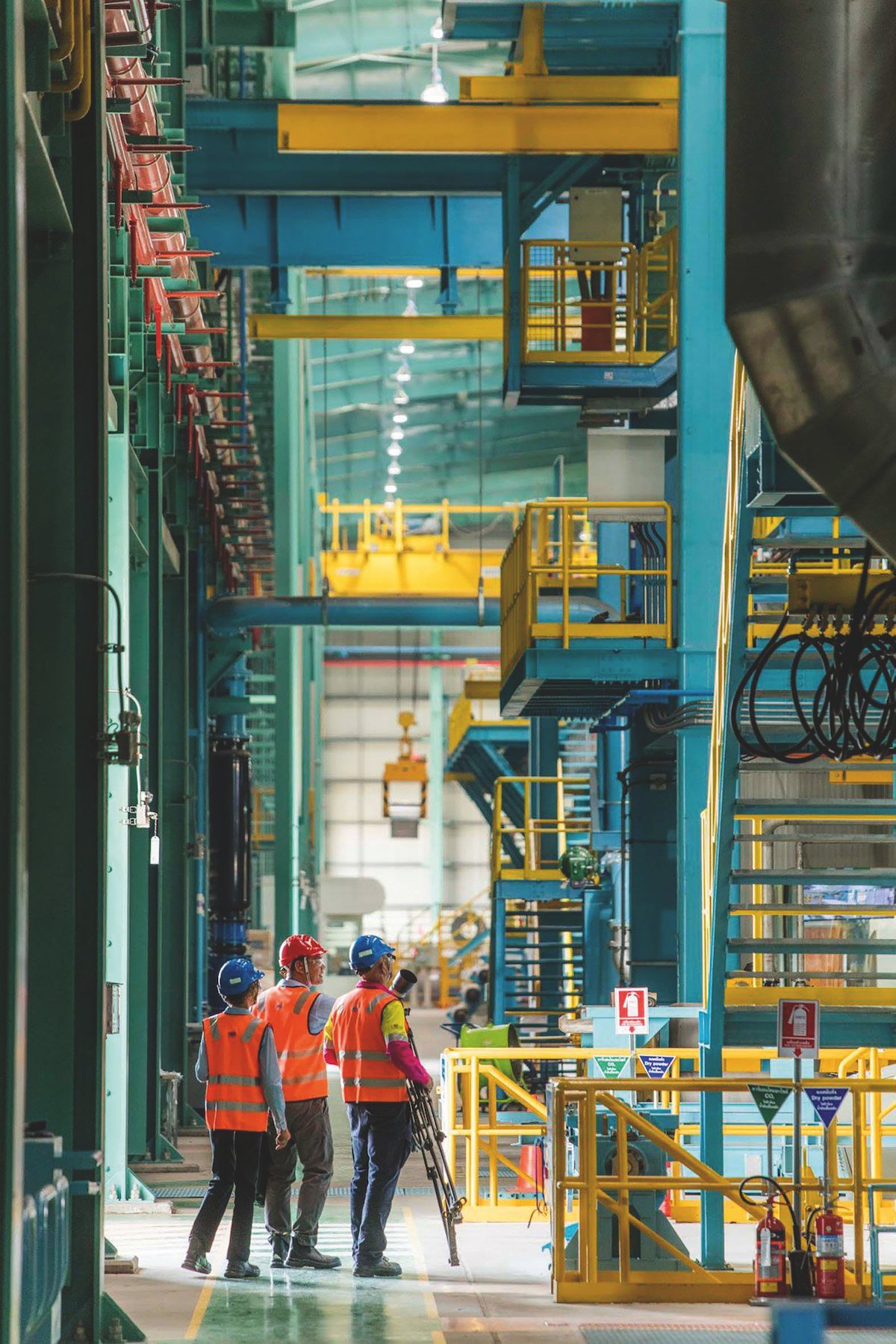
“At that time, the required health controls were still being developed as we were implementing them, so we stayed in very close communication with the government departments.” In another endorsement of her leadership, Gretta was nominated to participate in a joint government, industry and union group to share and consult on how to manage work safely in Level 4.
“Like a lot of businesses, our initial view was that there would be a post-COVID slowdown, so we did a lot of work to understand how we would adapt the business to a smaller, domestic footprint if that eventuated,” she recalls. As it turned out, fortune swung the opposite way. “We’re producing at record levels. But overall, agility and the ability to change rapidly have been key.”
As a global player, BlueScope also did its part to help those in the wider community. “We worked together to assist our colleagues by sourcing and shipping N95 masks, oxygen concentrators and ventilators to India for donation to communities and hospitals in great need,” Gretta says.
“In Australia, we’ve donated funds to services that support women and families, following increased mental health and domestic violence issues raised during the pandemic. In Indonesia, Lysaght Cilegon donated goods, funds and masks to organisations working to protect the community from the pandemic.”
Closer to home, New Zealand Steel partnered with local iwi group Ngāti Tamaoho and a registered health provider to host COVID-19 vaccination centres for employees and contractors. The cultural connection is something that, Gretta believes, has a great value; one that transcends business.
“I’ve learned basic Te Reo Maori to engage more fully with the culture of the people of the land,” she says. “Sharing language builds understanding between cultures, and it maintains pride and identity. While I’m not fluent, I feel confident enough to use the language at appropriate times.”
A common goal
As BlueScope gears up to increase its focus on climate change, Gretta says innovation is at the heart of her team’s efforts. “Innovation is essential for us to achieve our goals in decarbonisation. Lower or zero-emission iron and steel making will rely on the development of new processes at commercial scale,” she suggests. Thus, the climate change team is across innovation and new technologies, actively exploring what application they might have for future action.
“We are exploring several emerging and breakthrough technology options to progress along the pathway,” Gretta says. “We’re also working with research partners on concept studies, including the use of hydrogen in iron making and the potential use of charcoal to replace coal in blast furnaces. Even more, we recently announced a collaboration with Rio Tinto to explore options for low-emissions steelmaking at BlueScope’s Port Kembla Steelworks in New South Wales.”
For those committed to reducing emissions, the way forward won’t be easy. Innovation alone won’t achieve promised targets – it will take ingenuity, care and teamwork. “Like a lot of leaders who come from strong technical backgrounds, I was very task focused and eager to prove myself through getting things done,” Gretta says.
“But the best advice I ever received was to slow down a bit. I still get frustrated sometimes at the lack of pace, but then I remind myself that time spent building understanding and alignment is truly worthwhile. We all need to get there together.”


